Best (Post)or Apocalyptic Films of the 21st Century So Far
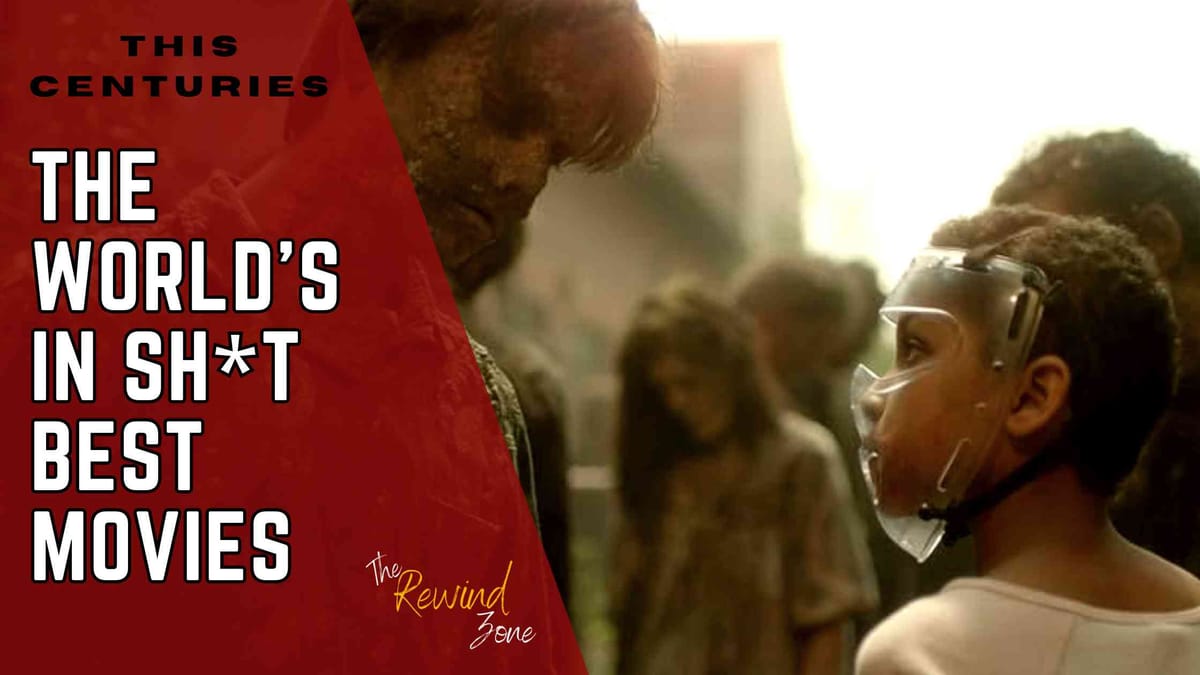
The (post) + apocalyptic genre has captivated audiences for decades. These films explore imagined futures after a world-altering cataclysmic event or impending doom, examining how humanity might survive and adapt in or before the event. From zombies to climate disasters to alien invasions, the premises showcase the incredible resilience and ingenuity of the human spirit.
As we enter 2024, here is a look back at some of the most impactful and groundbreaking post- and/or apocalyptic films over the past 24 years that continue to inspire and influence the genre.
In no particular order...
28 Days Later (2002): Reinvigorating the Zombie Genre

Director Danny Boyle's 28 Days Later reinvigorated the zombie genre with its fresh take on the living dead. When a highly contagious "rage" virus spreads rapidly across Britain, bicycle courier Jim (Cillian Murphy) awakens from a coma to find London eerily deserted and overrun by viciously infected survivors. As Jim joins other survivors, Selena (Naomie Harris) and Mark (Noah Huntley), they struggle to stay alive and search for a safe haven from both the infected and dangerous militant oppressors.
With its gritty guerrilla filmmaking style, 28 Days Later created more aggressive, fast-moving zombies that felt frighteningly real. This intensity helped pave the way for the modern zombie renaissance, from AMC's The Walking Dead series to hit films like World War Z. The film's beautiful yet haunting shots of empty London cityscapes also powerfully symbolised the loneliness of being among the last remnants of humanity. Despite its low-budget roots, 28 Days Later earned over $85 million worldwide and left a biting mark on zombie entertainment.
"It's closer to the Rabid school, that kind of viral-plague movie. But it was the first movie to feature runners - they came at you really fast. That simple adjustment revitalized the entire genre." - George A. Romero, acclaimed director of classic zombie films like Night of the Living Dead
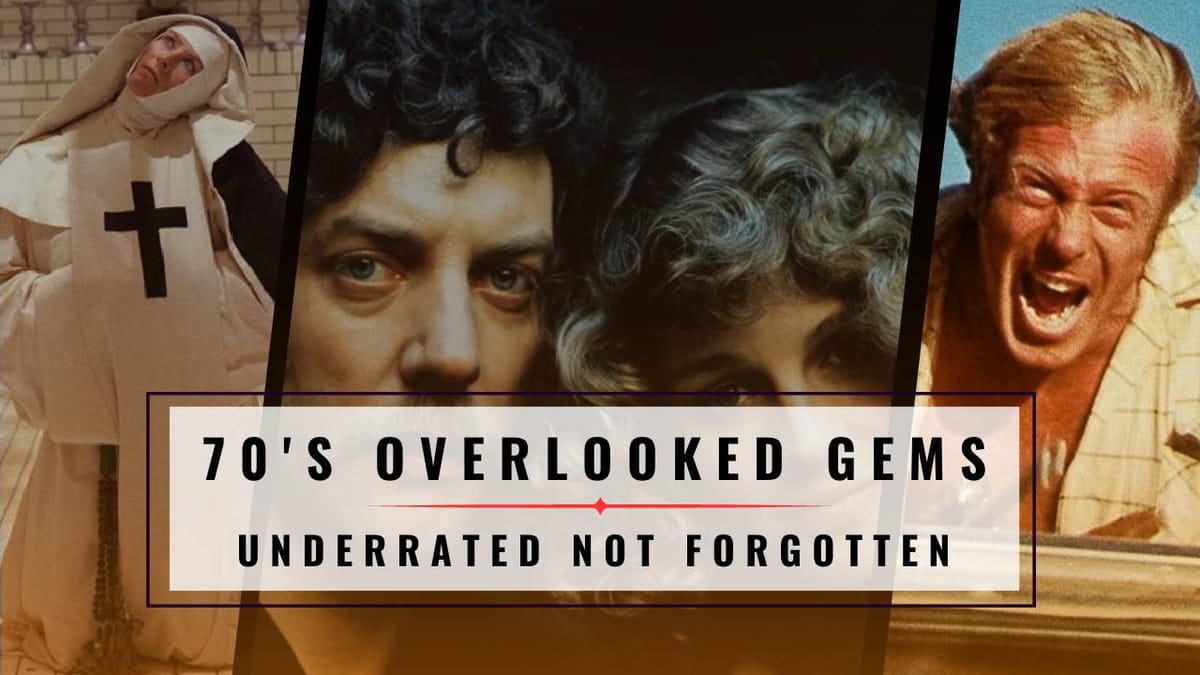
Snowpiercer (2013) - An Absurd Yet Striking Class Struggle Allegory

Directed by Bong Joon-ho and adapted from the French graphic novel Le Transperceneige, Snowpiercer is set after a climatic experiment to counter global warming, which plunged Earth into an icy apocalypse. In this dystopian future, the planet's last survivors live confined to a perpetually moving train divided by social class. When passengers in the grimy tail section stage an uprising led by Curtis (Chris Evans), they advance car by car towards the elite of the engine, uncovering the train’s dark secrets hidden behind its meticulous hierarchy.
Snowpiercer stands out for its wild, high-concept premise that works as an audacious class struggle allegory. The film's bizarre visuals and over-the-top violence punctuate the stark inequality and oppression of its world, driving home a thought-provoking message about social injustice. Anchored by Evans’ strong lead performance, it's a thrilling and eccentric rollercoaster ride that barrels ahead towards an unforgettable climax. Despite a limited theatrical release hampered by distribution issues, Snowpiercer earned critical acclaim and found wider audiences beyond arthouse viewers, further showcasing director Bong's crossover appeal. Tilda Swinton is amazing as always!
Shaun of the Dead (2004) - Hilarious Horror-Comedy Perfection
Edgar Wright's hit zom-rom-com Shaun of the Dead affectionately parodies and pays tribute to classic zombie films while delivering huge laughs. When Shaun (Simon Pegg) and his hapless best friend Ed (Nick Frost) find themselves stuck amidst a zombie outbreak in suburban London, their video game and movie-fueled plans to survive ultimately fall apart in hysterical ways.
As a hilarious love letter to the horror genre, Shaun of the Dead elevated zombie comedy with its quick-witted script and excellent comedic performances from Pegg and Frost. It zips along at a brisk pace between bursts of gory action, pop culture references, and endlessly quotable gags. While providing crowd-pleasing entertainment, it also explores the quarter-life crisis of a drifting Shaun seeking responsibility and purpose in his life beyond the Winchester pub. Shaun of the Dead set Pegg, Frost, and Wright on the map, leading them to create further beloved entries in their revered “Blood and Ice Cream Trilogy.”
“We thought, ‘zombies are so played out. Is there a way we can kind of do one but make it different?’ And we came up with...what if they were in North London and didn’t even really notice?’” - Simon Pegg
A Quiet Place (2018) - Inventive Sound Design and Edge-Of-Your-Seat Tension

John Krasinski's sleeper hit A Quiet Place terrified audiences by taking away one of cinema's key senses: sound. In a chilling post-alien invasion world where creatures instantaneously hunt by sound, the Abbott family struggles to survive by living in near silence. As they mourn the loss of their youngest son taken by the aliens, pregnant mother Evelyn (Emily Blunt), father Lee (Krasinski), and their two surviving children must risk their lives to scavenge supplies while avoiding any noise.
A Quiet Place throws viewers into an extremely tense apocalyptic experience, relying on visual storytelling and innovative Foleys. Krasinski taps into primal fears as the helpless family whispers desperately to avoid threats they cannot see except for brief yet terrifying glimpses. With minimal dialogue, bombastic set pieces, and a deeply emotional core centred on parenthood, this smash hit and its sequel keep audiences holding their breath through every second. It catapulted Blunt and Krasinski to new career heights and modernised the creature feature into the streaming age.

Sunshine (2007) - Awe-Inspiring Visuals and Chilling Tone Shift

Directed by acclaimed Oscar winner Danny Boyle, Sunshine is a gripping interstellar thriller fueled by philosophical sci-fi concepts. In 2057, scientists embark on a critical mission to reignite our dying sun with a massive stellar bomb, hoping to save humanity before Earth perishes into an endless winter. As the crew of the Icarus II shuttle stares down at the literal death of their home planet, their psyche and resolve unravel during the immense voyage, culminating in shocking discoveries about their fateful expedition.
Featuring an ensemble cast led by Cillian Murphy and Chris Evans, Sunshine transports viewers through an artistic vision driven by physics and stark visual beauty. The appearance of former astronaut Pinbacker (Mark Strong), however, hurts an otherwise hard science fiction tale with an unnecessary slasher villain. Nevertheless, as a psychologically intense trip to the heart of the Sun, Boyle once again showcases his mastery of genre hybrids and evoking visceral emotions, for better or worse. While underappreciated upon release, Sunshine’s visual panache and weighty themes about saving humanity have since earned it a strong cult following.
The Book of Eli (2010) - Gritty Spiritual Journey Across a Barren Wasteland

In the Hughes brothers’ stylish action thriller The Book of Eli, Denzel Washington stars as a lone wanderer crossing the dangerous wastelands left after an apocalyptic war thirty years prior. Eli is secretly safeguarding the coveted last remaining copy of the Bible sought by Carnegie (Gary Oldman), a savage dictator who uses religious scripture to control the tattered remains of civilization. Carnegie soon pursues Eli relentlessly to exploit the influential book for his empire.
Through kinetic fight scenes, the Hughes brothers craft a compelling good versus evil battle, heightened by religious subtext tied to Carnegie and Eli's biblical quest. Like an Old Testament prophet, Washington delivers a solemn, magnetic performance guided by his unwavering faith and duty. Visually borrowing from both classic Westerns and the Mad Max series, The Book of Eli paints a dire yet riveting portrait of life persisting after societal collapse while emphasising Eli’s sacred purpose. It succeeds as a gritty action vehicle for Washington and a thought-provoking philosophical allegory, earning over $157 million globally.
The Road (2009) - Bleak and Devastating Adaptation
Based on Cormac McCarthy’s Pulitzer Prize-winning novel, John Hillcoat’s adaptation of The Road depicts a father and son (Viggo Mortensen and Kodi Smit-McPhee) navigating a desolate post-apocalyptic wasteland strewn with ash and the remnants of humanity. With civilization frozen over by an extinction event, the man and boy travel south towards the coast, desperate to survive groups of cannibals and the looming onset of winter.
Staying faithful to McCarthy’s poetic yet disturbing prose, The Road pulls no emotional punches, showcasing a completely shattered world where only the familial bond between the man and boy shows any hope. Hillcoat’s rendering of McCarthy’s vision is grim, dirty, and utterly devastating in its nihilistic outlook of humanity reduced to its worst impulses. Mortensen delivers an intense, haunted performance, conveying the complex trauma and relentless will to live of the man. As an uncompromising adaptation and meditation on the resilience of parenthood in dire circumstances, The Road leaves a lasting scar with its unflinching portrait of society’s remains.
WALL-E (2008) - Charming Sci-Fi Tale with an Environmental Conscience

The beloved Pixar film WALL-E presents a touching post-apocalyptic setting through the lens of an adorable trash compacting robot. In a distant future where Earth has become an uninhabitable wasteland of garbage, the small WALL-E robot endlessly clears debris city by city. But when advanced robot EVE arrives and takes WALL-E on an interstellar voyage aboard the starliner Axiom, he discovers the fate of the human race after mass ecological destruction forced them to evacuate Earth centuries ago.
WALL-E delivers Pixar’s signature warmth and humour, centred on the charming Chaplin-esque title robot. His blossoming relationship with sleek recon robot EVE sparks an adventure spanning the galaxies with endearing antics. Director Andrew Stanton also crafts WALL-E’s post-apocalyptic Earth setting with an urgent environmental conscience, offering a cautionary vision of ecological Armageddon. As Pixar’s most ambitious effort at the time, both technically and thematically, the brilliant WALL-E contemplates humanity's impact from an intimate yet cosmic point of view, led by two iconic robot protagonists.
Edge of Tomorrow (2014) - Thrilling Sci-Fi Groundhog Day

Doug Liman’s innovative sci-fi flick Edge of Tomorrow stars Tom Cruise as Major William Cage, an inexperienced public relations officer who gets thrown into a catastrophic battle where insectoid aliens called “Mimics” have conquered Europe. Killed within minutes on the battlefield, Cage gets trapped in a time loop, forcing him to repeat the battle and his death in an endless cycle. He soon teams up with renowned soldier Rita Vrataski (Emily Blunt) to hone his combat skills with his looping ability and hopefully alter the war’s outcome.
With each repeated battle sequence, Edge of Tomorrow delivers escalating stakes and inventive twists, showcasing Cage’s growth into an unlikely saviour. Blunt is perfectly cast as the Film's badass warrior archetype, which Cruise must match. Backed by strong performances and slick direction from Liman, the film stands out as a rare, well-executed video game-esque sci-fi premise grounded in the emotional journey of its leads. While underappreciated during its initial run, the creative action blockbuster has since achieved beloved status as a thrilling and surprisingly heartfelt "Groundhog Day" take on alien invasion films.
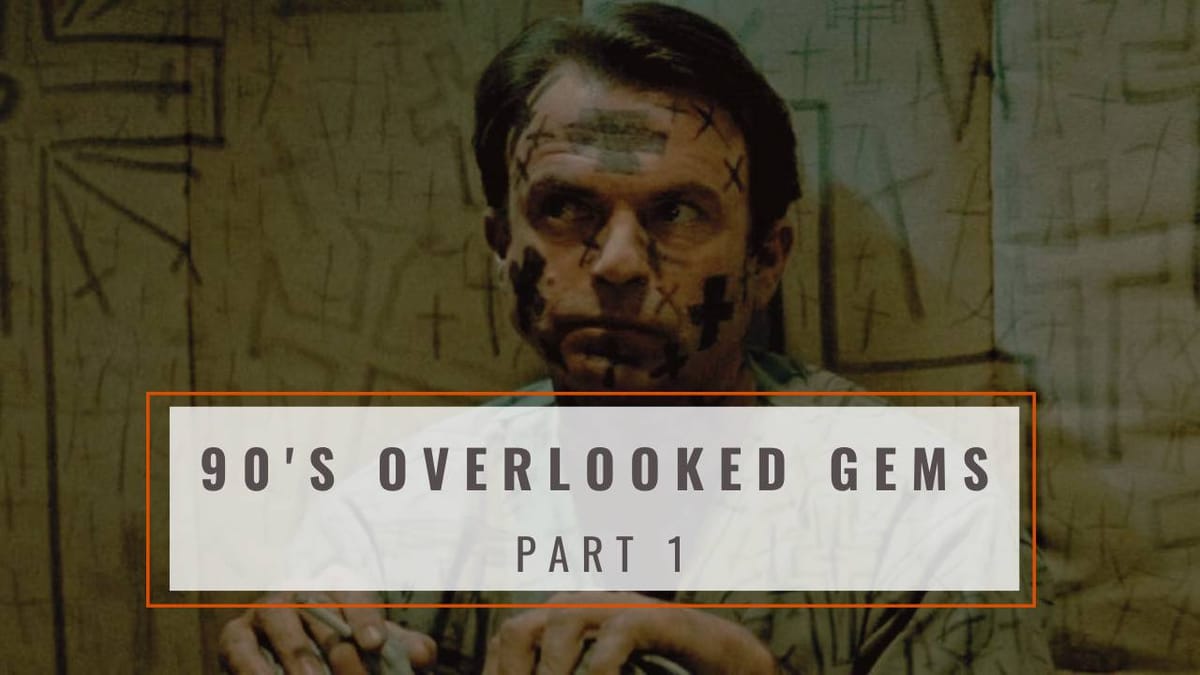
Train to Busan (2016) - Non-Stop Zombie Mayhem

South Korean director Yeon Sang-ho’s thrill ride Train to Busan dives full steam ahead into zombie chaos when a viral outbreak suddenly ravages the country. As swarms of infected swarm cities and overwhelm martial law barricades, passengers aboard a train to Busan band together against multiplying zombie hordes also climbing onboard. Unprepared and trapped within narrow train cars, they desperately battle infected former riders in hyper-violent encounters, struggling to make it to their destination alive.
Train to Busan injects adrenaline and humanity into familiar zombie lore, delivering nail-biting sequences where the living keep getting backed into tighter spaces occupied by the creeping infected hordes. With no room to breathe between attacks, Sang-ho crafts inventive and terrifying zombie set-pieces unmatched in intensity. Anchored by sympathetic characters facing impossible choices, Train to Busan offers emotional stakes beyond mere survival, zooming relentlessly ahead through blood, sacrifice, and heartbreak towards a sobering finale. As one of the most defining modern zombie films, it redefines the genre with filmmaking as fast and infectious as the encroaching zombies themselves.
Cargo (2017) - Unique Father-Child Perspective on Survival
Directed by Ben Howling and Yolanda Ramke, the Australian post-apocalyptic drama Cargo presents a grounded, emotional character study within its zombie premise. Andy (Martin Freeman) struggles to find a sanctuary for his infant daughter Rosie after a zombie pandemic spreads across rural Australia. As he begins succumbing to infection himself, he discovers Indigenous inhabitants may have answers to keeping his baby safe, hoping to preserve her future before his transformation.
Backed by Freeman’s subtle, affecting performance, Cargo’s small-scale narrative aims for a more intimate lens into both the resilience and helplessness of attempting to shelter children amidst apocalyptic threats. While light on plot, its thoughtful themes about family and morality amid chaos made it a sleeper success, even adapted into a wider Netflix/YouTube international expansion. With its novel aboriginal folklore context predating more fantastical zombie origins, Cargo stands apart as a melancholic and moving tale of parental love persevering past death itself.
Dawn of the Dead (2004) - Immersive, High-Octane Remake

Zack Snyder’s explosive remake of George Romero's seminal zombie classic, Dawn of the Dead, pumped new blood into the subgenre. When a mysterious viral outbreak morphs civilization overnight into mindless flesh-eating creatures, survivors take refuge together inside a deserted shopping mall besieged by hordes of undead in the parking lot and inside stores.
As an atmospheric, high-energy refresh, Snyder amps up the gore and sprints breathlessly through a hellish plethora of zombie tableaus bursting with impeccable production values. Only when establishing its band of mismatched living characters does the script lose momentum. But once Snyder plunges them into blood-soaked bedlam, Dawn never loses breakneck momentum right up to its explosive finale and helicopter escape above reanimated masses. It earned over $100 million worldwide and pushed the boundaries of the restrictive R-rating to ultimate limits with both quantity and quality of carnage.
The Girl with All the Gifts (2016) - Unique Fungal Zombie Premise
Based on M.R. Carey’s novel, Colm McCarthy’s The Girl with All the Gifts brings new shades of grey to the zombie genre with its morally complex coming-of-age tale. In a collapsed civilization where most humans have transformed into mindless "Hungries" from a viral fungal infection, young hybrid girl Melanie (Sennia Nanua) and other gifted second-generation children seem to demonstrate emotional control despite also craving flesh. Under examination by scientist Dr. Caldwell (Glenn Close), teachers like Helen Justineau (Gemma Arterton) defend their humanity until an attack on their military base forces the complex hybrid children to take charge of their destinies on their own hopeful yet dangerous terms.
Anchored by a stellar Nanua's moving breakout performance as Melanie, The Girl With All the Gifts invests considerable emotional care to complicate our understanding of zombie children facing persecution. McCarthy grounds the film’s tension and moving themes around children’s agency amidst an apocalypse through terse yet thrilling set-pieces. As a refreshing spin on post-apocalyptic fiction, it makes zombies children too while offering sympathetic insights into the parental yearning within monstrous plague victims.
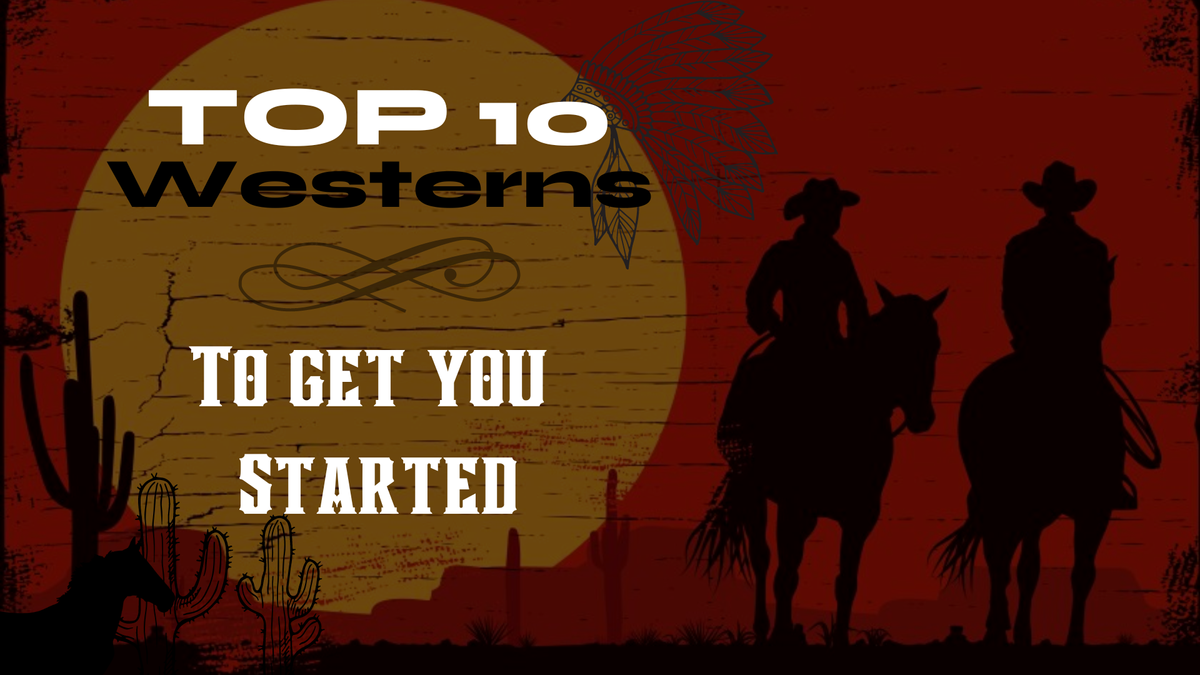
10 Cloverfield Lane (2016) - Suspenseful Psychological Thriller

Produced by J.J. Abrams, 10 Cloverfield Lane shocked audiences as a secret quasi-sequel in the Cloverfield universe. After surviving a car accident, Michelle (Mary Elizabeth Winstead) wakes up locked inside an underground bunker with her supposed saviour Howard (John Goodman) and fellow refuge Emmett (John Gallagher, Jr.). Howard warns that the air outside has become toxic after a catastrophic attack. But Michelle and Emmett soon suspect he may be an unhinged conspiracist falsely imprisoning them rather than their protector.
With masterful tension-building, director Dan Trachtenberg traps viewers as his claustrophobic thriller peels away nuanced layers of mystery. Centred around powerhouse performances, clever red herrings, and an utterly unpredictable Jekyll & Hyde-esque turn by Goodman, 10 Cloverfield Lane keeps guessing right until its thrilling finale. While a loose spin-off rather than a direct sequel, its ability to continually surprise and reinvent franchise expectations showcases Abrams’ grasp on riding pop culture hype. Captivating on its own merits as a sleeper hit, it cemented Winstead as a versatile leading Scream Queen.
I Am Legend (2007) - Will Smith Against the Vampire Apocalypse
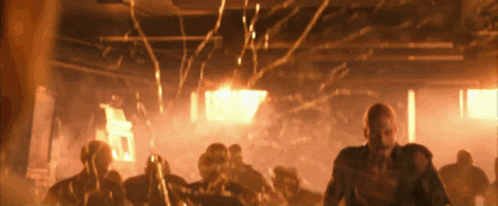
Adapted from Richard Matheson’s classic novel, I Am Legend envisions Will Smith's Robert Neville as the apparent sole survivor left uninfected by a devastating man-made virus that transformed humanity into nocturnal cannibalistic mutants resembling vampires. As Neville struggles in isolation to discover a cure using his own immune blood, he fights to survive against endless waves of violent bloodthirsty infection stalking his every move at nightfall. But Neville's belief that humanity hangs on him alone is challenged upon encountering other uninfected refugees.
Director Francis Lawrence captures a memorably haunting, decrepit New York Cityscape plagued by viral darkness, with Smith carrying its intense drama through a compelling solo performance. Backed by impressive CGI effects bringing nimble vampire creatures to visceral life, Smith deftly conveys Neville’s resilience, fraying under traumatic repetition into madness against an unrelenting enemy. Despite a misguided ending deviating from its celebrated source material, I Am Legend endures as a vehicle capturing Smith operating at the height of his powers against revolutionary digital monsters created through unprecedented world-building technology.
Children of Men (2006) - Dystopian Refugee Crisis Amidst Global Infertility

Director Alfonso Cuarón plunges viewers into a war-torn dystopia ravaged by hopelessness in his gripping and visually astonishing Children of Men. In a speculative 2027, civilization stands on the brink as humanity has suffered two decades of mysterious global infertility. As mankind faces inevitable extinction after Earth’s youngest inhabitant dies at 18, Theo Faron (Clive Owen) steps into the middle of an intense refugee crisis sparked when an immigrant woman, Kee (Clare-Hope Ashitey), miraculously becomes the first woman in twenty years to become pregnant.
Noted for its grueling long takes and technical wizardry, the astounding Children of Men presents a dire future ravaged by violence and xenophobia. Owen's weary protagonist finds a new purpose in protecting Kee's momentous pregnancy from radical factions pursuing their own agendas for her unborn hope. Depicting a fallen world where governments have collapsed while rebels and refugees clash violently over their future, its urgent commentary on the politics of displacement reveals Cuarón’s prescient visionary voice. Ten years before Europe’s peak immigration wars, Children of Men's societal breakdown offers a harrowing warning call against demagoguery and oppression that has only strengthened over time.
Interstellar (2014) - Emotional Space Epic Across Time and Space

Christopher Nolan’s grandiose and gusty epic, Interstellar, traverses the furthest reaches of space and time itself. In a mid-21st century where overpopulation and food shortages ravage society, former pilot Cooper (Matthew McConaughey) joins a daring NASA mission to travel across a newly discovered wormhole, seeking an inhabitable world for humanity’s exodus. But traversing such extreme gravitational forces causes the astronauts’ experience of time to accelerate increasingly out of sync with those back on Earth.
Anchored by McConaughey's soulful performance, Interstellar balances heady theoretical concepts about time relativity and quantum cosmology against building stakes for Cooper to return home to his daughter Murph (Mackenzie Foy). With seamless Oscar-winning visual effects rendering surreal astronomical wonders, Nolan crafts an earnest blockbuster spanning the intimate bonds of family to the furthest frontiers of spacetime itself. Its divisive ending elicits tears while also provoking questions about the transcendent power of love enmeshed within inter-dimensional travel. Audiences craving heartfelt character drama on Nolan's trademark literally cosmic canvas found the rare spectacle that moved both the heart and mind to infinite possibility.
World War Z (2013) - Global Zombie Pandemic on an Epic Scale

Adapted from Max Brooks' celebrated novel, Marc Forster’s apocalyptic horror thriller, World War Z, depicts a raging viral pandemic rapidly engulfing the globe as countries fall one by one. Former UN investigator Gerry Lane (Brad Pitt) gets recruited to trace the zombie virus back to its origins in hopes of discovering a cure before the remaining human settlements get overwhelmed. With the fate of humanity in the balance, Gerry narrowly escapes harrowing encounters facing the exponential viral outbreak escalating towards worldwide extinction.
Paramount's troubled production notoriously ballooned into costly reworks and reshoots, but the final result still delivers thrilling large-scale action, balancing smart sociopolitical threat dynamics that evoked early COVID pandemic parallels. Pitt carries the smart material with gravitas through relentless volcano-hot viral swarms, grounding World War Z’s far-flung crisis through his urgent crusade to snuff its cataclysmic origins. It reignited enthusiasm for the zombie genre by creating an unrelenting global scope while sharpening its stylish horror visuals into terrifying viral allegories, paving the way for spinoffs and future franchise installments.
Take Shelter (2011) - Haunting Psychological Thriller
In Jeff Nichols’ unsettling drama Take Shelter, construction worker Curtis (Michael Shannon) suffers recurring apocalyptic dreams and visions of an impending catastrophic storm. Unable to dismiss them as mere hallucinations, he becomes obsessed with renovating a dangerous old storm shelter for his wife Samantha (Jessica Chastain) and deaf daughter Hannah (Tova Stewart), withdrawing his life savings without explanation. As his family and doctor fear these delusions stem from the development of schizophrenia that plagued his mother, Curtis feverishly prepares for his prophetic storm before his grip on reality shatters completely.
Through Shannon's intense performance as a loving family man internally tormented by nightmarish visions bubbling to the surface, Take Shelter externalizes his spiraling mental health breakdown with palpable atmospheric dread. Blurring lines between subjective reality and the metaphorical subconscious, Nichols fashions a haunting ordeal, dragging Curtis towards inevitable collapse. Yet glimmers of hope remain through Chastain’s steadfast Samantha even as Curtis' world threatens to engulf his family whole. The explosive ending shocks and resonates through its cathartic finality. As a gripping and emotional psychodrama against an apocalyptic backdrop, Take Shelter lingers as a disquieting glimpse into fragility and self-destruction from within.
The Rover (2014) - Surreal Australian Noir

David Michôd’s striking crime neo-Western The Rover envisions a lawless outback frontier a decade after worldwide economic collapse. When three thieves steal ageing ex-soldier Eric’s (Guy Pearce) last possession—his car—he ruthlessly hunts them down, accompanied by abandoned simpleton Rey (Robert Pattinson), left behind in exchange. Across haunting, dusty terrain, Eric pursues cold vengeance, forming an unexpected bond with Rey, seeking lost family of his own.
Backed by the wounded machismo of Pearce's magnetic performance, The Rover's sparse dialogue and poetic outbursts punctuate heavy silences against gorgeous desert vistas. Stark and meditative, Michôd borrows Australia’s enduring isolation to explore masculinity and human connection, enduring past civilization’s remains. Pattinson also delivers an unexpected career-best turn, conveying Rey’s childlike empathy and trauma. Together, their journey unfolds a moving fable carved directly into Earth's elemental heart. While polarising critics, The Rover’s arthouse noir vision cemented Michôd’s talent for mining existential resonance from lawless, post-collapse fiction.
Don't Look Up (2021) - Satirical Comedy of Political Inaction Against Annihilation
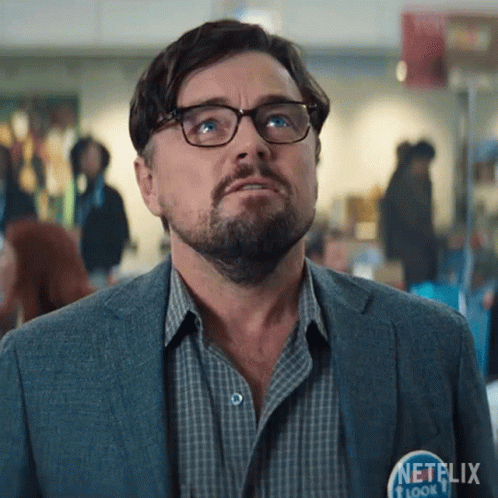
Adam McKay’s allegorical black comedy Don’t Look Up trains its satirical lens on climate crisis apathy, tracking two scientists navigating inept politicians and distractible media to warn humanity against an impending comet catastrophe. When astronomy PhD candidate Kate Adam (Jennifer Lawrence) and professor Randall Mindy (Leonardo DiCaprio) confirm a massive comet will destroy Earth in just six months, President Orlean (Meryl Streep) publicly downplays and stalls disaster preparations to avoid economic disruption and preserve her approval ratings.
McKay’s flashy ensemble comedy experiments with propulsive tonal clashes, ping-ponging between absurdity, emotional pleas, tension-bursting slapstick, and sharp, insightful barbs on self-involved pundits lacking all scientific literacy. Anchored by Lawrence and DiCaprio's comedic chops, Don’t Look Up juggles cynical laughs and impassioned climate messages until planetary stakes crescendo to literal explosive ends. While divisive as a cinematic experience, McKay undoubtedly struck a mainstream nerve, critically mocking leadership failures against preventable disasters unfolding in slow motion before our eyes.
Hidden (2015) - Claustrophobic Underground Isolation
The Duffer Brothers, creators of Stranger Things, directed this taut psychological thriller centred around a family quarantined in an underground shelter after escaping an unspecified viral epidemic. Forced into isolation with dwindling oxygen, tensions boil over under suffocating pressure, and external danger may be overshadowed by threats emerging from within.
Claustrophobic and moody, its cryptic scares scrape raw nerves against confinement anxiety until sibling distrust, domestic abuse rifts, and oxygen deprivation combust within inescapable walls. As an early test run before their retro nostalgia smash Stranger Things, the Duffers exhibit tight atmospheric thrills vitalizing post-apocalyptic drama into a relatable pressure cooker crucible, assessing ultimate trust under life and death stakes.
Zombieland (2009) - Hilarious Prototypical Post-Apocalyptic Comedy

Ruben Fleischer’s hilarious horror comedy Zombieland kickstarted the post-apocalyptic zom-com genre, sparking a resurgence by marrying laughs with undead mayhem. Socially awkward college student Columbus (Jesse Eisenberg) navigates zombie-overrun America, following strict survival rules to stay alive. He grudgingly teams up with boisterous Tallahassee (Woody Harrelson) on a quest to find the last Twinkies while encountering fellow survivors Wichita (Emma Stone) and Little Rock (Abigail Breslin).
Powered by its quirky ensemble cast's chemistry filled with heart and laughter, Zombieland revitalised interest in horror comedy by finding genuine character-driven bonds and comedy within the zombie wasteland. Beyond raucous splatter hijinks, it packs a surprisingly poignant emotional core as this makeshift family of survivors forges connections that transcend simply staying alive. Its witty banter and blockbuster success cemented it as a hugely influential and beloved comedy franchise-starter, directly inspiring spiritual successors like Shaun of the Dead while belatedly birthing an eventual sequel reunion a decade later.
Melancholia (2011) - Stunning Apocalyptic Character Study

Lars von Trier’s visually arresting Melancholia intimately studies the psychological impact of inevitable apocalypse through two sisters with opposite coping mechanisms. As melancholic bride Justine (Kirsten Dunst) attempts celebrating her lavish wedding reception amidst crippling depression, her headstrong sister Claire (Charlotte Gainsbourg) nervously tracks an approaching rogue planet suddenly on destructive collision course with Earth. With time running out, they both face hopelessness and acceptance in their own ways as their planet's end nears.
Employing a daring surrealist prologue revealing Earth's literal destructive fate outright, von Trier then patiently dwells within his sisters' shifting mental states through tragedy and resignation. Backed by a raw career-best Dunst performance confronting emotional paralysis, he crafts ravishing imagery laced with dreamlike wonder at encroaching cosmic forces beyond control. Both intimate chamber drama and literal cataclysm playing out concurrently, Melancholia alchemizes impending apocalypse into an oddly cathartic eulogy for existence itself. While criticized as capitalizing upon clinical depression, its radical empathy grounded through visual splendor still astounds.
The Crazies (2010) - Grounded Small Town Outbreak Thriller

In 2010, director Breck Eisner effectively remade George Romero’s bio-terror opus The Crazies, modernising its quarantined outbreak thrills while keeping grounded character stakes. After a weaponized toxin contaminates their idyllic rural hometown, deputy sheriff David (Timothy Olyphant) and wife Judy (Radha Mitchell) band together with other unaffected survivors against infected aggressors made violently insane. With the military quarantining and threatening witnesses to conceal the escalating outbreak’s extent, David must shepherd their group’s escape outside militarised boundaries.
Staying faithful to Romero’s original socio-political themes on bungled containment and paramilitary overreach, Eisner still injects pulsating style into chaotic set-pieces across pastoral dystopian landscapes. Backed by Olyphant’s solid everyman heroics at its core, The Crazies makes its familiar viral formula freshly frightening again through lean storytelling and lively scares keeping audiences invested in escaping alongside characters worth championing to the very end. As both a respectful update and loving spiritual descendant of Romero’s cautionary outbreak classics, this infectious thriller helped revitalize global viral fears as dynamic blockbuster horror.
From zombies to aliens to climate catastrophes and more, post-apocalyptic fiction continues to evolve across every genre to channel cultural fears into thrilling speculation. As filmmaking tools keep advancing alongside imagination, such speculative “what-if” tales allow audiences to immerse themselves in dire futures to confront modern anxiety. These films test hypothetical extremes of human resilience against impossible threats to ask ourselves: What will your breaking point be? Who will remain by your side? And how far must you journey across shattered worlds to build hope and survive beyond tomorrow?
Let us know in the comments if we've missed any you'd like to see on the list.
Thanks for taking the time to read this article. Please consider checking out more of our content. New articles are released weekly. Your support means the world to us.
Happy Viewing!





Comments ()